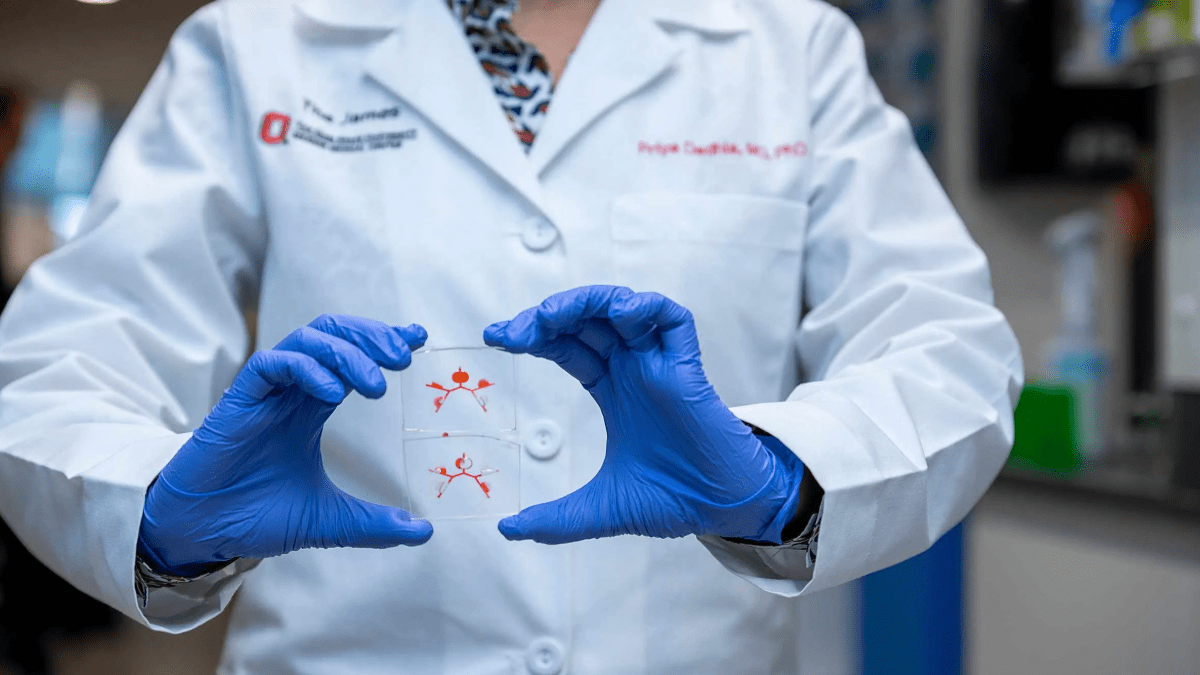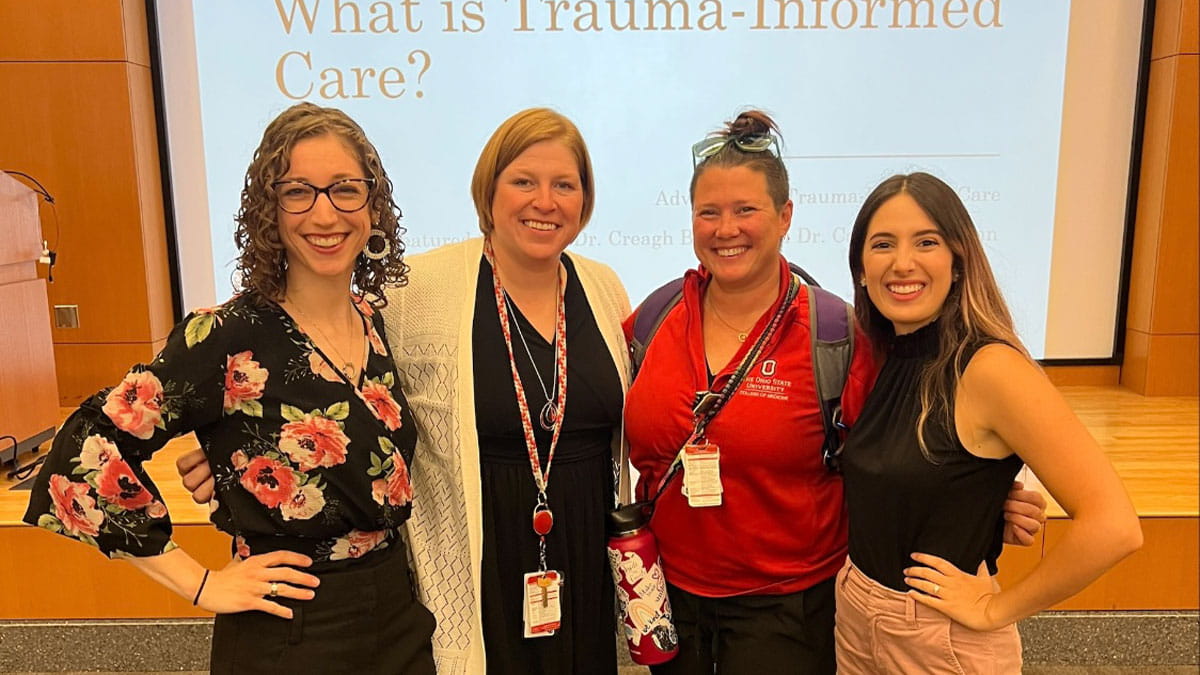American Association of Plastic Surgeons selects Kerry-Ann Mitchell, MD, PhD, for academic scholarship
For patients undergoing neurosurgical procedures, neuroplastic surgery can address the physical deformities associated with head trauma and skull and scalp reconstructive surgeries. And it plays a critical role in the long-term outcomes for these patients. 
Kerry-Ann Mitchell, MD, PhD, assistant professor of Plastic and Reconstructive Surgery at The Ohio State University College of Medicine, primarily focuses on complex scalp reconstruction, cranioplasty and patient-specific custom skull implants for adult patients undergoing neurosurgical procedures. Dr. Mitchell is heavily focused on not only helping patients heal, but also helping to improve their quality of life.
Dr. Mitchell was recently named the 2023 Academic Scholarship Award recipient by the American Association of Plastic Surgeons (AAPS) for her proposal “Nanotransfection-Based Cell Reprogramming to Drive Cryopreserved Calvarial Bone Revascularization in a Novel Mouse Model.” This is the most competitive award AAPS gives to junior faculty within the field.
“It is very encouraging to receive this award, as this means my preliminary data has been peer reviewed by the top surgeons in the field and they see potential with this research,” Dr. Mitchell says. “This award is a tremendous honor, as the AAPS is the oldest society of plastic surgeons.”
Dr. Mitchell has taken advantage of many opportunities at Ohio State, such as the Physician Scientist Retention in Research Support and the Launch to K workshop, which have enabled her to develop necessary mentoring relationships and collaborations across Ohio State that make this proposal and resulting award possible. This particular AAPS award makes it possible for young researchers, such as Dr. Mitchell, to pursue careers as plastic surgery investigators.
Dr. Mitchell completed her PhD in epilepsy research, but always knew she wanted the patient care interactions that physicians have. During medical school, she aimed to implement her neuroscience and research background into her patient care. Rather than neurosurgery, which deals with extensive acute patient care, she chose to focus more on palliative care by working to better her patients’ quality of life.
Dr. Mitchell's research uses nanotransfection-based cell reprogramming to revascularize skull tissue. This could have a revolutionary impact on craniotomy recovery.
“This could provide patients a better quality of life, much faster than previous approaches,” Dr. Mitchell says.
When craniotomy procedures are done, a portion of the scalp is removed and replaced after a healing period. During this time, the patient is susceptible to complications such as the Syndrome of the Trephined, which can cause further cognitive deficits and delay recovery.
Dr. Mitchell is working with one of her mentors, Paco Herson, PhD, professor of Neurological Surgery at the Ohio State College of Medicine, to use stroke and TBI mouse models to try to preserve the architecture of the skull using nanotransfection-based cell reprogramming. Mouse models are a common translational model in research, as they have a short lifespan and behavioral changes can be easily measured. This means that cells from various regions of the body are being re-programmed to form blood vessels and are injected into the skull to regrow and revascularize bone tissue.
To connect patients with a multidisciplinary care team that would, otherwise, be divided between different locations and appointments, Dr. Mitchell is also working with her colleague Andrew Grossbach, MD, clinical assistant professor of Neurological Surgery at the Ohio State College of Medicine, to establish a neuroplastic surgery program at The Ohio State University Wexner Medical Center.
“This way patients can receive holistic care and prioritize patient-directed goals,” Dr. Mitchell says.
The program is the first program in the Midwest that will centralize neurosurgical patient care in one location.



